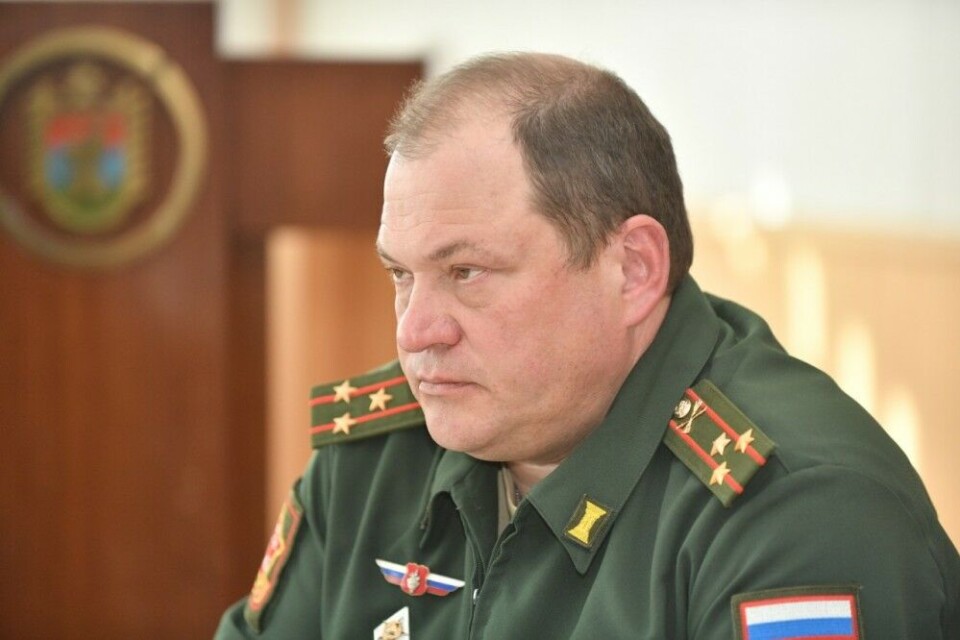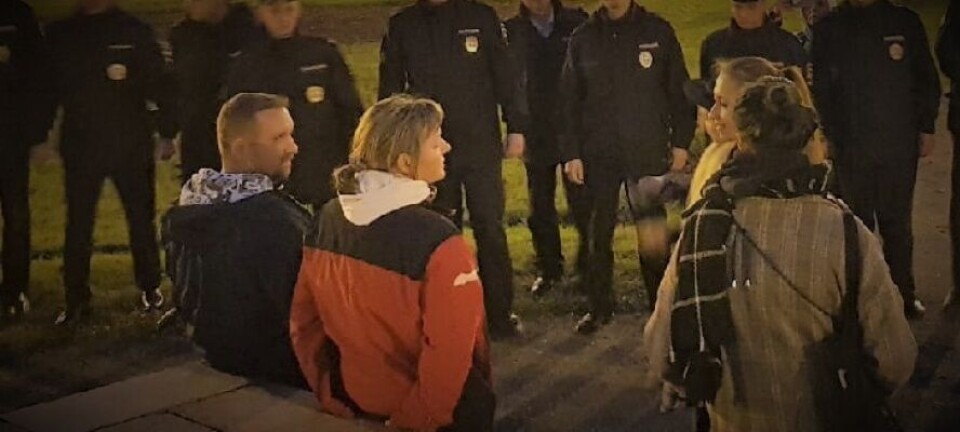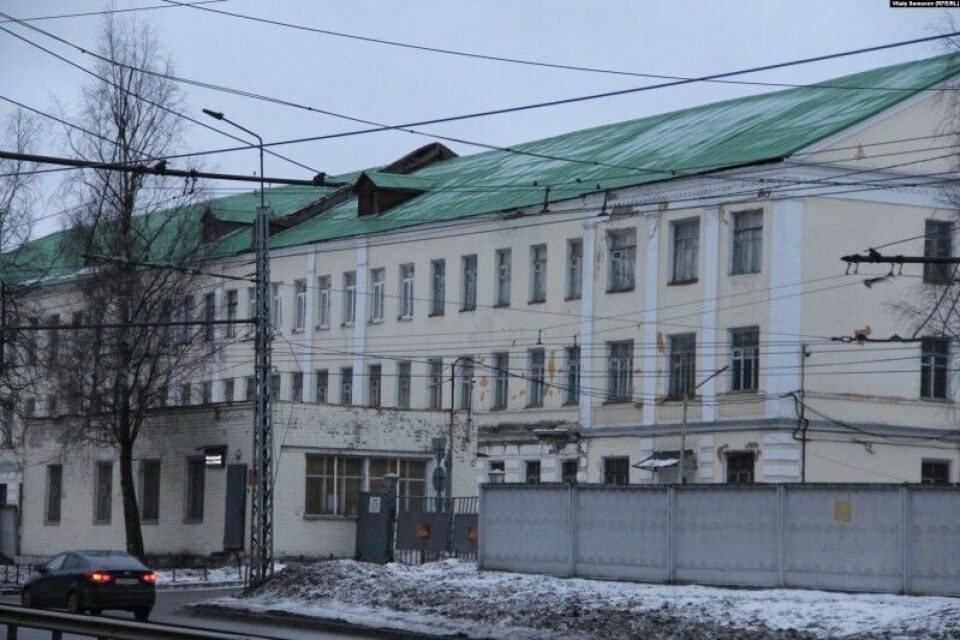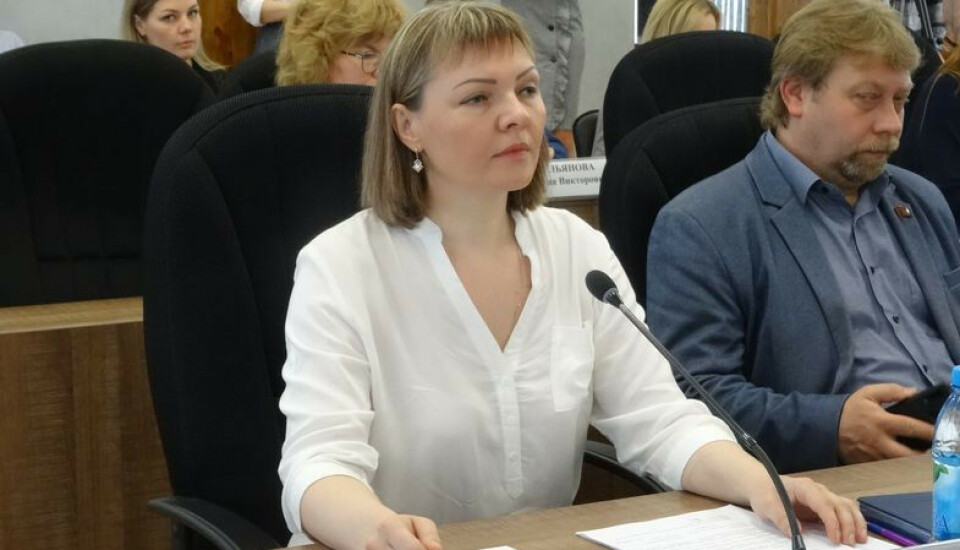
Military commissar threatens local opposition lawmaker to “get things straight” about why her husband is not at the front
Chief draft officer Andrei Artemiev does not like Olga Tuzhikova's human rights activities. Tuzhikova, a member of the Petrozavodsk City Council, is trying to help mobilized and volunteer soldiers to return home.
The military commissar of Karelia, Andrei Artemiev, has threatened local politician Olga Tuzhikova to “straighten things out” about why her husband has not been called up for the war in Ukraine. The legislator is a lawyer and well understood this to be a direct threat and revenge for her human rights activities. Tuzhikova helps mobilized and volunteer soldiers who want to return home.
Tuzhikova has a seat on the Petrozavodsk city council for the liberal Yabloko Party and has repeatedly expressed her anti-war position. In recent months, she has been contacted several times by relatives of men with chronic diseases, unpaid court fines and even drug addictions who have been “illegally” mobilized. She has also been contacted by men who volunteered but were denied their requests to return home after the completion of their contract. The Barents Observer has previously written about the difficulties volunteers face when they do not want to continue serving. Tuzhikova helps draw up complaints and claims and represents their interests in court.
None of these activities please Artemiev. In early January, he called Tuzhikova and requested her presence at the recruiting office for “a conversation”. Tuzhikova says she was optimistic at first.
“My first thought was that maybe he wanted to help. Perhaps it was even a chance to do something good for the people who contact me. But the “invitation” turned very strange when I told Artemiev that I couldn’t come because I was on sick leave. He said “Take a look, your condition might be getting worse.” It was here I realized that this was not a kind person and I decided to record our conversation.”

From the audio recording, which is at the disposal of the Barents Observer, her fears were confirmed. Artemiev’s conversation began in a passive-aggressive manner but soon changed to open aggression.
Artemiev: Tell me, please… I’ve heard quite a lot about you but I can’t really understand. What are you doing with these men who are called up for mobilization, under contract, and so on? Explain it to me in simple terms. What do you want? What are you trying to achieve?
Tuzhikova: Citizens come to me as a deputy and I work with them. Sometimes I get appeals from mobilized men and sometimes from volunteers… I’ve received a total of eight appeals.
Artemiev: Ok, You get an appeal. Then what happens?
Tuzhikova: Then I find out what their status is. For example, one volunteer had his contract expire but he was not released.
Artemiev: And what do you think about this?
Tuzhikova: My personal opinion?
Artemiev: No! I’m not interested in your personal opinion here. You are a part of the Petrozavodsk City Council. Excuse me, you are a representative… I leave my personal opinions at home on my pillow. I’m also a lawyer as well as a person with many military backgrounds. I am a lawyer. Believe me.
The conversation turned to the legal status of volunteers, who Tuzhikova believes should not be listed as military personnel. She explained in detail that the men were civilian contractors and therefore, the ban on breaking a service contract, which was put in force at the beginning of mobilization, should not be applied to them. According to the law, any volunteer should be able to go home after their contract expires. This is stated on the pro-government website объясняем.рф (we explain) and it was verbally stated to them when they signed up. According to the law, they have the right to terminate their contract unilaterally when their service is done.

Additionally, volunteers are only supposed to join volunteer detachments. But when our volunteers arrived, they were told that there were no such places. This means that they should have either let them go or agreed to accept them as contractors. But they did not do either. They simply ignored the letter of the contract and this goes against the rules and procedures for the admission of citizens to military service.
Artemiev in turn argued that by signing a contract, the volunteers automatically received the status of military personnel. This was a quintessential part of the law adopted in October 2022. He also believes that this is for their own good.
Artemiev: Let me give you an example. What do you think would happen if a non-military volunteer was captured?
Tuzhikova: I don’t know. What would happen?
Artemiev: Because he would be some unexplainable mercenary and so on, they would just kill him.
Artemiev and Tuzhikova then analyzed one specific case of a man who managed to return home despite his commander’s demands that he renew his contract. The military commissar of Karelia was shocked to learn that the “refusenik” had serious illnesses. His tone however remained attacking.
Tuzhikova: The man has one lung, a pin in his leg, hepatitis C and poor vision.
Artemiev: So, you are saying he hid the fact that he had only one lung when he signed his contract as a volunteer?!
Tuzhikova: No, he told you all about it.
Artemiev: If he was missing something, why did he go [to the war] then? How did he even get a contract?
Tuzhikova: The question is how you managed to offer him a contract! What is the military enlistment office looking for? Drug addicts, deaf people; you are taking anybody…
Artemiev: Let’s not generalize. Believe me, I am not enjoying this conversation with you…
Tuzhikova: If it’s unpleasant, I can leave.
Artemiev: Yes, you can leave. But aren’t you scared? When there is a war or a special military operation, don’t you realize how many men complain about us?
Tuzhikova: I’m scared for people leaving for a military operation who are not capable.
At this point, Artemiev had reached his limit.
Artemiev: Do you have a husband?
Tuzhikova: I will not answer this question.
Artemiev: Is he there?
Tuzhikova: I won’t answer the question!
Artemiev: Men are here, men are there. Go on, get out of here. I don’t want to talk to you. This is revolting. I have a war to fight…
Tuzhikova: So you only recruit people who are capable in this war?
Artemiev: Go on! Get out of here.
Tuzhikova: I very much doubt that drug addicts, tuberculosis patients and others who do not correspond to the rank of a proper soldier can perform their tasks appropriately. You are taking the sick, the lame, criminals, people without lungs… Why are you drafting this type of personnel?
Artemiev: [addressing a subordinate in the office] Get a policeman in here… [To Tuzhikova] You are just a talking person, nothing more. You are not competent. You are just a PR girl for the misfortune that has befallen our country. Get lost! I’ll figure out who your husband is and we’ll get things straight about why he hasn’t been called.
Tuzhikova: Good luck. Don’t forget to figure out who my son, uncle and grandfather are.
Artemiev: I’m not crazy enough to do that. But all the same, It’s my job to understand who and what you are. (To the policeman) Get this lady out of here.
Artemiev’s belligerent tone is not surprising. In April, for example, the military commissar attended the funeral of a soldier killed in Ukraine. The mother of the deceased claimed that he had been a conscript but then someone asked Artemiev if this was true and he refused to answer the question. Journalists persisted and the military commisar accused them of practicing cynicism, “destabilization” and said that the media representatives “needed to grow up.”
Olga Tuzhikova however, doesn’t see Artemiev’s closing words as rudeness, she sees them as a direct threat. Implying that “figuring things out” meant that he could arrange for Tuzhikova’s husband to be mobilized can’t be interpreted any other way. So far, they were only words.
“He literally said that either I stop defending people or my husband will be sent to the front. Yes, I am scared. It is frightening to realize that the fate of my beloved is in the hands of one specific official. He was telling me that my husband’s life was his to decide.”

Tuzhikova intends to file an abuse of power complaint with the police against the military commissar of Karelia. The deputy wants to complain about Artemiev’s threats to mobilize her husband and that he said he intended to collect personal information about them.
A journalist from the Barents Observer called Artemiev to get a comment. The official however, refused to answer questions. Instead, he insulted the journalist, called him a traitor, demanded that he “never call him again” and then hung up.
In Russia, many opponents of the war in Ukraine are being persecuted and this even includes government officials. In October, Karelian deputy Leonid Liminchuk, representing the United Russia party, wrote a complaint, condemning fellow deputy, Emilia Slabunova, for discrediting the armed forces. The administrative case against Slabunova, who is also a member of the Yabloko party, has been accepted by the prosecutor. There is also a complaint, denouncing Olga Tuzhikova, though she does not know who its author is. Tuzhikova is being held accountable for reposting a petition against mobilization on social networks.
This story was originally published in Russian. It is translated to English by Adam Goodman















